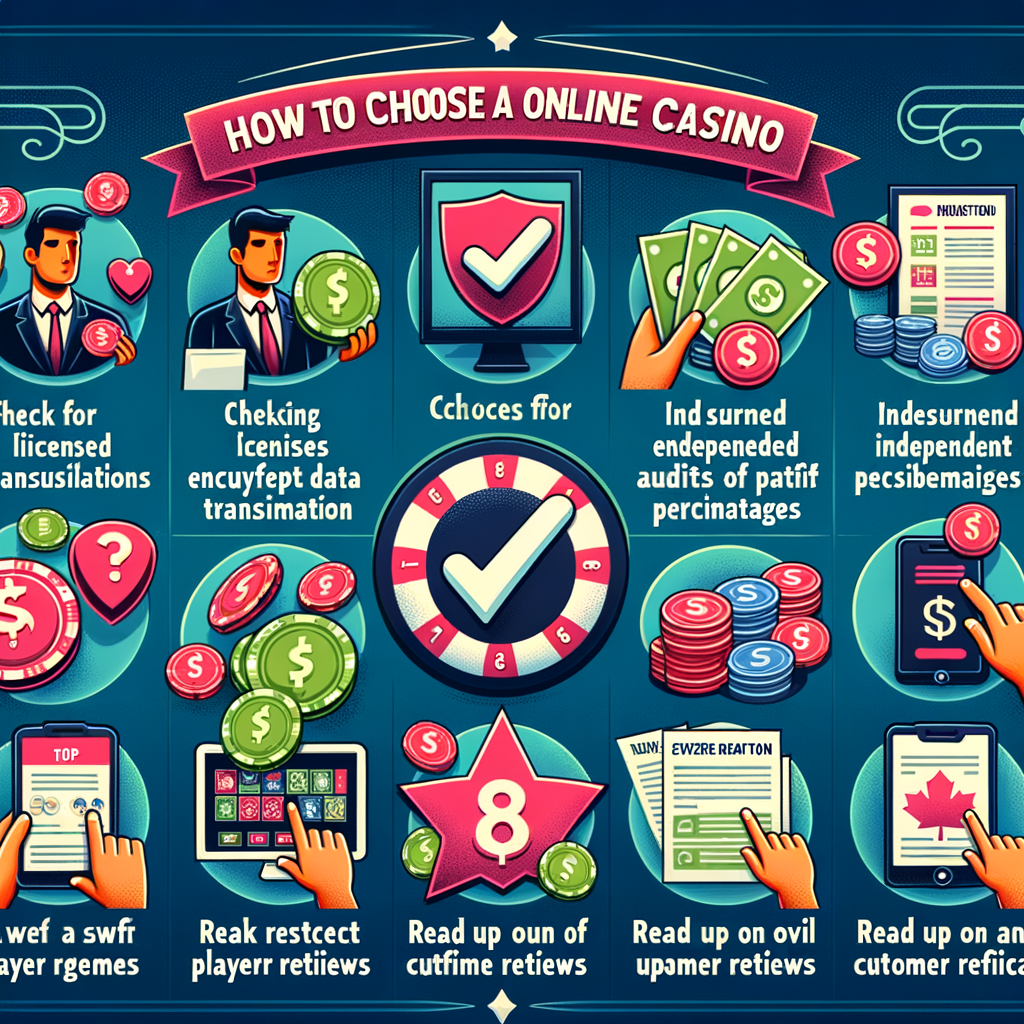Online casinos have become a popular avenue for entertainment and potential income. However, the rise in online gambling has also attracted scammers looking to exploit unsuspecting players. This article will guide you through the essentials of identifying online casino scams, enabling you to gamble safely and responsibly.
Understanding the Basics of Online Casino Scams
Online casino scams can take various forms, from fake websites that disappear with your money to operations that manipulate games in favor of the house. Scammers often employ attractive bonuses and promotions that sound too good to be true, luring players into their traps. Understanding these basic concepts is the first step in safeguarding yourself from fraud.
Typically, these scams operate under the guise of legitimate online casinos, utilizing professional-looking websites and customer service. They may even use fake licenses and endorsements to gain the trust of potential players. However, the odds are usually stacked against you, with games that are rigged or impossible withdrawal terms.
Many online scams are also designed to steal personal and financial information. They may ask for sensitive data under the pretense of identity verification or account setup, leading to identity theft or unauthorized transactions. Being aware of these tactics can help you identify red flags before you engage with a casino.
Lastly, scams may thrive in the anonymity of the internet, making it difficult to trace them or hold them accountable. This lack of regulation and oversight allows fraudulent operations to flourish, making it crucial for players to be vigilant and informed.
Red Flags: Key Indicators of a Potential Scam
When assessing the legitimacy of an online casino, there are several red flags to be aware of. First, check for poorly designed websites or unprofessional interfaces. A legitimate casino invests in its online presence, while scam sites often look hastily put together or outdated.
Another warning sign is the lack of customer service options. Reliable casinos usually offer multiple ways for players to reach support, including live chat, email, and phone. If a casino provides no means of contacting customer service or has delayed response times, it's best to steer clear.
Scam casinos may also offer unreasonable bonuses and promotions that seem too good to be true. They often have hidden terms and conditions that make it nearly impossible to cash out winnings. Always read the fine print and be wary of offers that sound excessively generous.
Lastly, if you notice an absence of responsible gaming features, consider it a red flag. Legitimate casinos promote responsible gambling and provide tools for players to set limits on their gaming activity. A lack of such features can indicate a disregard for player welfare and signal potential fraudulent activities.
| Red Flags | Description |
|---|---|
| Poor Website Design | Unprofessional or outdated interface |
| Limited Customer Support | Few or no options for contacting customer service |
| Unrealistic Bonuses | Offers that seem too good to be true |
| Absence of Responsible Gaming | No tools to manage gaming behavior |
License Verification: Ensuring Legitimate Operations
One of the most important steps in verifying the legitimacy of an online casino is checking for a valid gaming license. Licensed casinos are regulated by authoritative bodies that enforce standards for fair play and player protection. Without a license, a casino can operate without accountability or oversight.
To verify a license, look for information at the bottom of the casino's homepage or in the "About Us" section. If the license information is missing or difficult to find, consider it a potential scam. Reputable casinos display their licensing details prominently to instill confidence in their operations.
You can further investigate the licensing authority itself. Different jurisdictions have varying standards, and some are more reputable than others. For instance, licenses from Malta, the UK, or Gibraltar are generally considered trustworthy, while others might not offer the same level of consumer protection.
Lastly, be cautious of casinos that claim to be licensed but provide no verifiable link to the licensing authority's website. Always take the time to cross-reference the information, ensuring that the casino operates under legitimate regulations.
Payment Methods: Safe Transactions vs. Red Flags
When it comes to making deposits or withdrawals at an online casino, the methods available can be a strong indicator of legitimacy. Safe and reputable casinos often offer a variety of well-known payment options, including credit cards, e-wallets, and bank transfers. If a casino only accepts obscure or untraceable payment methods, consider it a red flag.
Additionally, reputable casinos use encryption technology to secure transactions and protect player data. Look for indicators such as “HTTPS” in the URL or a padlock icon in the address bar. If these security measures are absent, your financial information could be at risk.
Another important factor to consider is the withdrawal process. Legitimate casinos provide clear and reasonable withdrawal terms, while scam sites may have convoluted rules that make it difficult to access your winnings. If the withdrawal process seems overly complicated or is accompanied by excessive fees, it could be a warning sign.
Lastly, check for reviews or complaints regarding the casino’s payment methods. Trusted sources and player feedback can offer valuable insights into how well a casino handles transactions. If you find numerous accounts of payment issues, it’s wise to reconsider your choice.
User Reviews and Feedback: Trustworthiness Insights
User reviews and player feedback serve as essential tools in assessing the credibility of an online casino. Sites like Trustpilot and casino forums provide platforms for players to share their experiences. A casino with consistent negative reviews should raise immediate concerns regarding its legitimacy.
Look for patterns in the feedback. If multiple players report similar issues, such as problems with withdrawals, unresponsive customer service, or unfair game practices, it’s likely that the casino is not trustworthy. Conversely, overwhelmingly positive reviews can indicate a solid reputation but should still be taken with a grain of caution.
Consider the recency of the reviews as well. A casino might have had a good reputation in the past but could have changed its practices over time. Always prioritize recent feedback to get a clearer picture of the current state of the casino.
Furthermore, take note of verified players who document their experiences. Genuine testimonials, particularly those from experienced gamblers, carry more weight than vague or overly promotional reviews. Engaging with player communities can provide valuable insights into which casinos are safe and trustworthy.
Reporting Scams: Protecting Yourself and Others Online
If you encounter a scam online casino, it’s crucial to take action to protect yourself and others. Reporting the scam to the appropriate authorities is the first step. Depending on your jurisdiction, you may contact local gambling regulatory bodies, consumer protection agencies, or law enforcement.
Additionally, spread the word within online gambling communities. Sharing your experience on forums, social media, or review platforms can help warn others about potential risks and fraudulent operations. The more information that circulates, the harder it becomes for scammers to operate undetected.
You may also consider filing a complaint with the payment provider used for the transaction. Many financial institutions have policies in place to assist customers who have fallen victim to fraud. They may be able to reverse the transaction or offer further guidance on how to proceed.
Lastly, maintain a record of all communications and transactions related to the scam. Documenting your experience can be useful for investigations and may aid authorities in addressing the issue. Your proactive approach can contribute to the broader effort of combating online gambling fraud.
Q&A Section
Q: How can I tell if an online casino is legitimate?
A: Look for a valid gaming license, check for reputable payment methods, read user reviews, and be cautious of red flags such as unrealistic bonuses or poor customer support.
Q: What are the signs of a scam online casino?
A: Signs include poor website design, lack of customer service, unrealistic bonus offers, and a lack of responsible gaming features.
Q: Is it safe to share my personal information with online casinos?
A: Only share personal information with licensed and reputable casinos that use secure encryption methods for transactions.
Q: What should I do if I think I've been scammed?
A: Report the scam to local authorities, contact your payment provider, and share your experience in online communities to warn others.



